Basic Math Skills Normal Geometry Worksheets for Ages 3-7
5 filtered results
-
From - To
Explore our "Basic Math Skills Normal Geometry Worksheets" designed for children ages 3-7! These engaging and interactive worksheets introduce young learners to essential geometric concepts, including shapes, sizes, and spatial relationships. Made for early grade students, they promote active learning through fun activities that enhance problem-solving skills. Easy to understand and aligned with early math education standards, these resources are ideal for parents and educators looking to reinforce geometry skills. Help your child develop a solid foundation in math while enjoying colorful visuals and hands-on practice. Download the worksheets today and watch your child’s confidence in math grow!
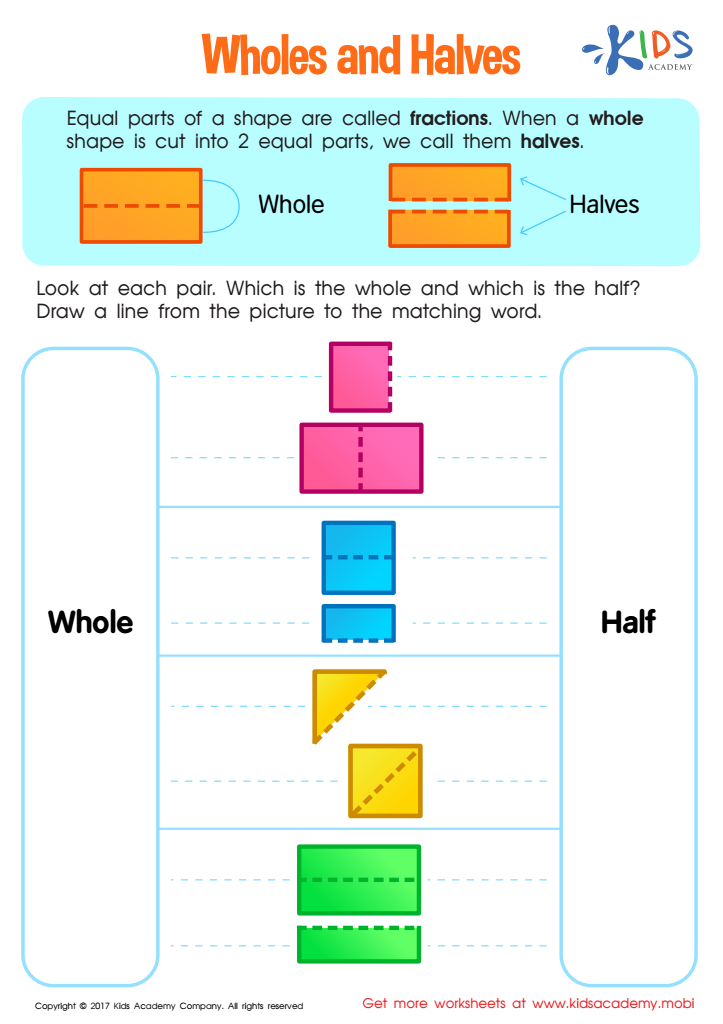

Wholes and Halves Worksheet
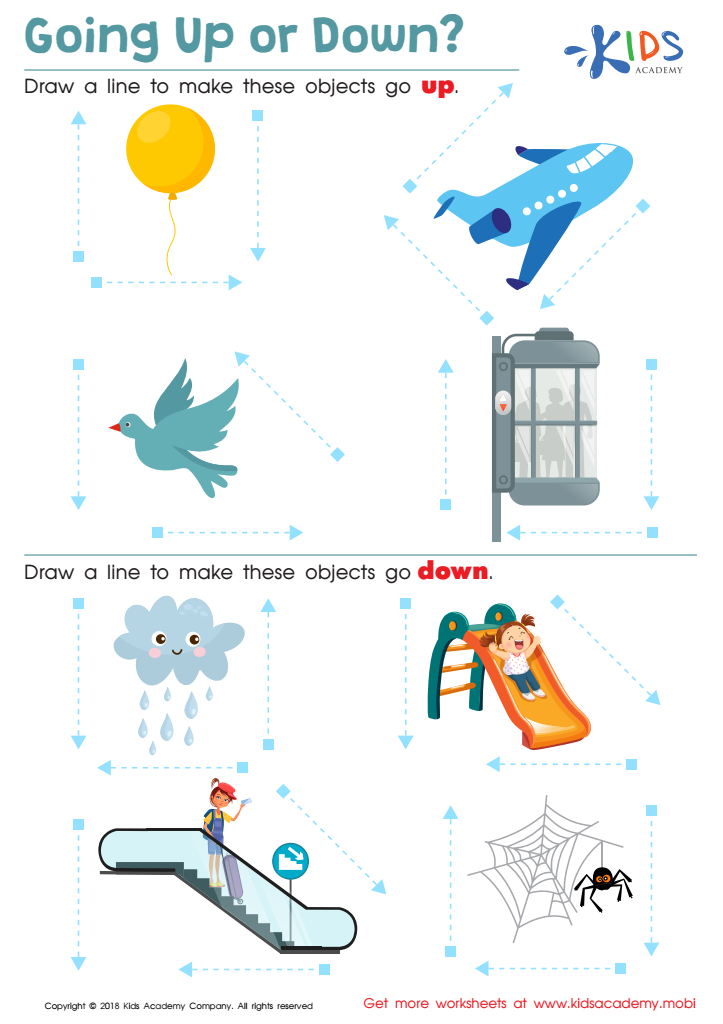

Going up or Down? Worksheet
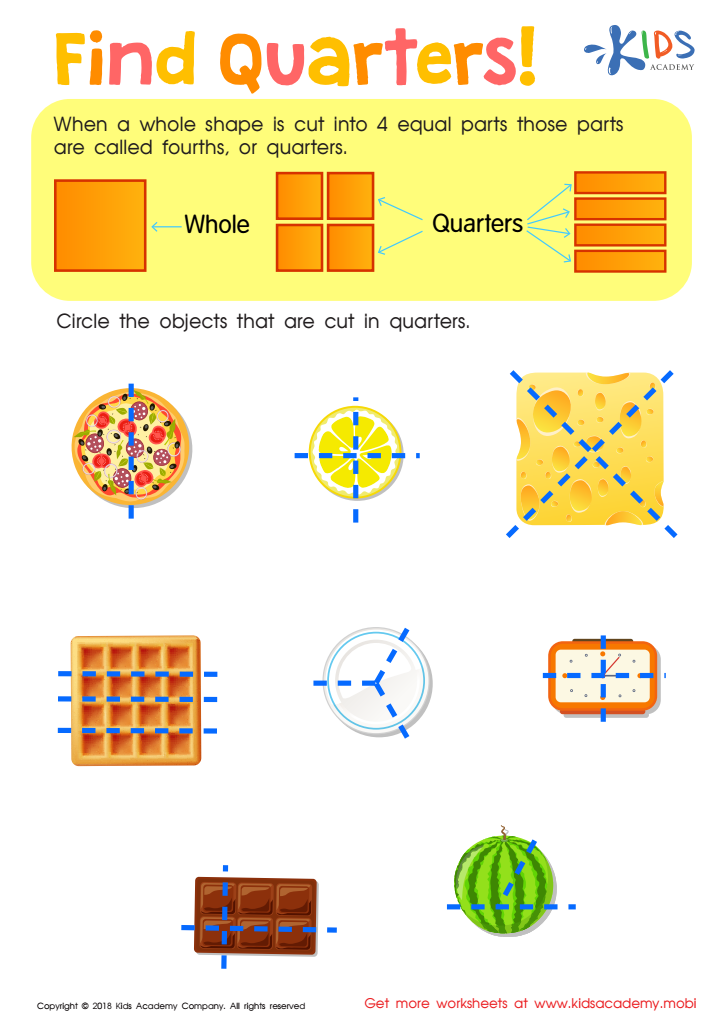

Find Quarters Worksheet
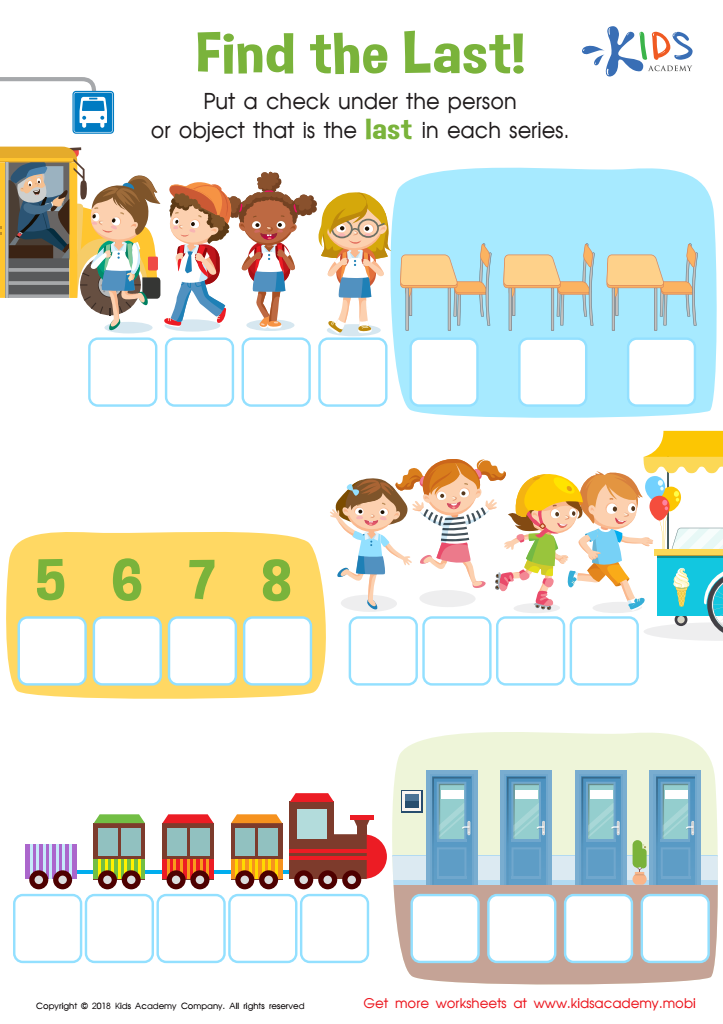

Find the Last! Worksheet
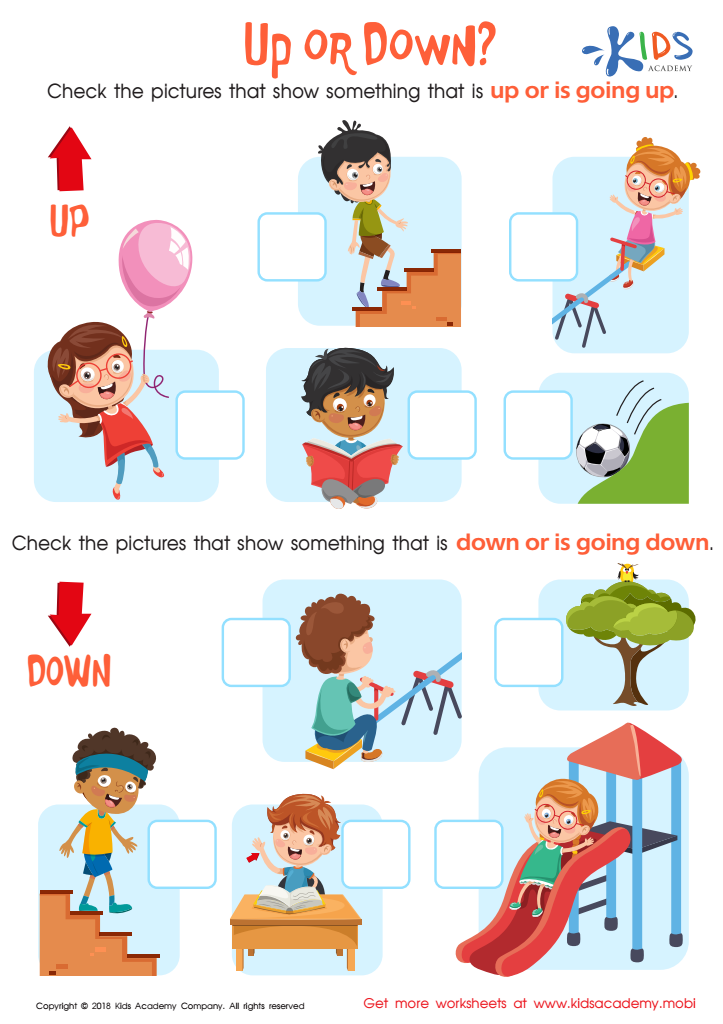

Up or Down Worksheet
Basic math skills, including foundational geometry, are crucial for children aged 3-7 as they form the backbone of future mathematical understanding. At this young age, children are naturally curious and learn best through engaging and interactive experiences. Introducing concepts such as shapes, spatial awareness, and measurement lays the groundwork for more complex mathematical skills made in later years.
Geometry helps children recognize patterns, develop critical thinking, and enhance problem-solving abilities – essential skills that extend beyond math to other domains of learning. By understanding basic geometric concepts, young learners can make connections between math and the real world, like recognizing shapes in their environment, which boosts their observational skills.
Parents and teachers play a vital role in fostering these skills. Engaging children in geometry through games, arts, and everyday activities not only makes learning fun but also encourages a lasting love for math. When children build a solid foundation in basic math and geometry during these formative years, they are more likely to succeed in subsequent educational stages, carrying these skills into their academic journey and daily life. Developing early numeracy is significant for enabling confident participation in a math-centric world.
 Assign to My Students
Assign to My Students















